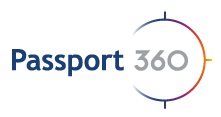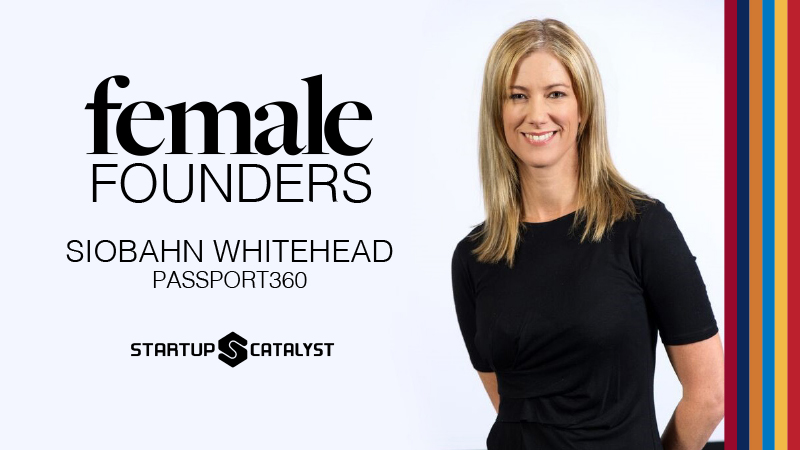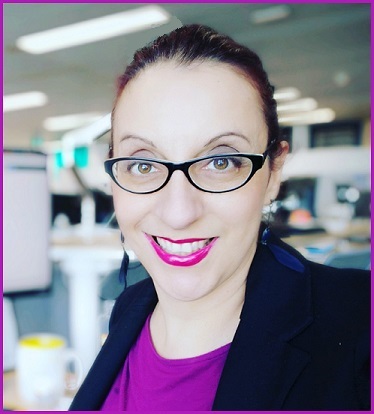Welcome to ‘Female Founders’, the Information Age series profiling 12 women who have grabbed the entrepreneurial reins and ridden into the unpredictability of start-up life.
We talk to the women about their business, entrepreneurship journey and advice they’d give to other women considering starting their own business.
Information Age interviewed all 12 women on the Start-up Catalyst Mission to London this year. Start-up Catalyst runs regular missions for start-ups, investors, and other leaders to some of the world’s top tech hotspots, such as Silicon Valley, Israel, Hong Kong and London. The goal? To transform both the individual and innovation landscape in Australia.
Today we speak with Siobahn Whitehead, co-founder of Passport 360.

Name: Siobahn Whitehead, co-founder
Business: Passport 360
Established: 2015 in Johannesburg, South Africa
No. of employees: 11
No. of customers: 2753
Information Age: What is your business all about?
Siobhan Whitehead: Passport 360 is a health and safety compliance system. We are software as a service (SaaS), and we help our mining clients on their journey to zero harm. We onboard contractors and employees onto high risk environments, such as mines, in a user-friendly and transparent experience.
IA: What problem does Passport 360 solve?
Siobhan: Contractors were moving between mines, and they were taking up to between six and eight weeks just to get onboarded onto a mining site. During that time, the mining client was paying their wage while they were onboarding. We really saw that there was a need in the industry to improve this process.
IA: How did the company begin?
We approached Anglo American, a big mining house. At the time, we were doing induction training for them, and that's where we identified this issue. We said to them, "Work with us, and we'll develop the solution in conjunction with you to help you solve this problem."
At the time, we were using another system to save contractor training records to, which we had started talking to clients about. This was really before cloud was a big thing in South Africa. Cloud hadn't arrived yet, but we basically had a cloud solution. We had servers in a data center that our clients could access the learning records of an individual – that's really where the idea for Passport 360 came from.
We began offering free plans for clients to access an individual's record but later decided to put a business case around this and broke the software business away from the training business.
That's when we approached Anglo American and said, "Look, this is a real issue. Let us show you how we can actually save you time and money here." It did take us a while to get there, but we did. We worked with Anglo in the beta phase for about six months, and then we took it out to the market after that.
We now have case studies that show how we improved onboarding time from six weeks to about two weeks.We use robotic process automation and AI to make the interface a lot more user-friendly for the client, contractors and employees that are onboarding onto a site.
IA: Why the name Passport 360?
Siobhan: It’s all about having a passport to work; a record for life if you're working in high-risk environments. It's a passport for your compliance. It contains medicals, training, competencies certificates, trade certificates and all of that.
It stores all of that in one easy to use electronic record that goes with you from client to client.
IA: Who is your ideal customer?
Siobhan: Our ideal customers are large scale, high-risk environment clients. We started in the mining industry, so companies such as Anglo American, BHP Billiton, South32, Rio Tinto, Glencore, are our primary clients. However, we can work in any high-risk environment. Energy, renewable energy, construction, manufacturing.
Anywhere where you have a lot of individuals working in high risk environments, and you need to track compliance issues to ensure people's safety – that's really our market.
IA: What is the biggest challenge you've faced along the way?
Siobhan: I think staff, or people issues, can sometimes be the greatest challenge. It's always really important to have succinct team and a team that's humming really well. Generally, we have had that, but every now and then you’d get someone into the team that maybe didn’t fit with the culture, and that can generally cause a lot of issues for the team.
We never hire someone straight off the bat. We'd always put someone on a fixed-term contract for three months to understand if they fit in with our culture.
It's all about attitude. It's actually the soft skills of the person versus the technical skills. You can try in anyone who's got the right attitude, I think. That's always been our view. It takes time to find the right staff.
At Passport 360, I wouldn't say we've had huge issues. In the training business, we had a couple of hair-raising moments when the mining industry cycle was really down, and our business model was dependent on bum-on-seats training.
IA: What was the training related to?
Siobhan: We were training induction safety training. Basically, it's all around being safe on a mine. It's a requirement under the Occupational Health and Safety Act that employers have to train anyone coming onto their site in health and safety, so that they can be safe and the people around them can be safe.
In Africa, it's quite different because we train in 11 languages there, and a lot of the people we've trained have never sat in a classroom before.
Some of them are illiterate. So, you'd have to go through and explain what various signage means. That’s quite a process when they can't read and write. We develop training programs with our clients to do that.
Passport 360 though is a bit of a different business model because it's software as a service. We set a subscription amount every month, so our revenue is constant. Whereas in a training business with the cycles, it goes up and down.
IA: Have you ever wanted to throw the towel in?
Siobhan: No, not really. Not when I'm deep in the business. I love the business, and even through the tough times when we have had the mining cycles being down and that kind of thing, we've had challenges along the way. I don't think I've wanted to throw the towel in.
What has been very challenging for me is moving to Brisbane without my team, which is based in Johannesburg. We are now pitching to the Australian market, so we hope to have a client in Australia soon, and we'll be developing a team in Brisbane as well.
IA: As your business has grown, do you think in hindsight, there's anything you would have done differently along the way?
Siobhan: Yes, I probably would have assessed the business structure and put more planning into it up front. I think for us, we were really just focused on solving the need of the clients. We were very focused on our local market, and not really looking at it from a global perspective. In hindsight, we probably should have done a bit more of research in terms of where the best place was to set up.
As a result, our holding company and our intellectual property is currently sitting in South Africa, which for me isn't necessarily the right setup. To try and unbundle that, it's difficult in hindsight. That's probably something I would have done differently based on what I know now.
IA: What is the vision for your business?
Siobhan: The vision is to scale the business globally. We do see that there's a need globally for training people in high-risk environments. The first market we're aiming to conquer is Australia. From there, we would like to look at Chile. We'd like to look at Eastern Europe, and possibly Canada as well.
But for now, the focus is really just getting a foothold in the Australian market and getting some large-scale miners on board in Australia.
IA: How have you funded your business to date?
Siobhan: It's been self-funded the whole way. We haven't raised any investment. We're looking to raise in the future, specifically, around the Australian market. I'd like to set up resources in Australia and we'd like to add to the product offering as well. The Australian market is slightly different. It's slightly more mature in terms of technology and systems in the space. There's still a need, but it's slightly different to the South African need. I'd like to put an investment into that to building the product slightly differently for the Australian market.
IA: Where would you invest the money from a capital raise?
I'd like to set up a team of developers in Brisbane. That's really the goal. I'd like to get a data scientist and a full stack developer. My CTO and co-founder is in Johannesburg. He is quite keen to come to Brisbane as well. That could be exciting. We've got a senior developer in Johannesburg, so he would run South Africa. He would be across the two countries as CTO.
The idea would be to establish an office and capability in Brisbane but most of the funds would go into product development.
IA: Have you always been entrepreneurial, or did someone put you on the path to entrepreneurship?
Siobhan: I think I've always been entrepreneurial. Even when I was small, I can remember selling plums from our garden, on the pavement [laughs]. I've always done things like that. It's quite funny, in hindsight, but I think it's always been in my blood. I've always enjoyed the challenge of business and problem-solving around business.
IA: Who has mentored you along this journey?
Siobhan: My business partner in the training business, Graham Emmett, was a great mentor to me. He’s had a great career and was a great inspiration to me. He was an industrial psychologist, so he was really good on the people side, and I'm very analytical as I come from an accounting background. So, it was really good to have that mix. He taught me a lot about people and managing teams and leadership along the way. I'm very grateful for that.
IA: What advice do you have for women looking to establish their own business?
Siobhan: Get yourself a mentor, and get yourself into a community that can support you. There are lot of ups and downs emotionally, so it's really good to have a group of people around you who can support you through that. Your confidence can take a lot of hits if you just stand alone, so have that network in place.
Roulla Yiacoumi travelled on the 2019 Startup Catalyst Mission to London with the Female Founders.










